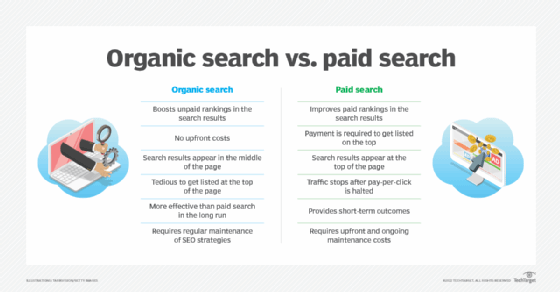The difference between paid and organic search lies in how they appear in search engine results and how they are acquired:
1. Paid Search :-
. Definition : Paid search refers to ads that appear on search engine results pages (SERPs) when advertisers pay to display their websites for specific keywords.
. How it works : Advertisers bid on keywords, & their ads show up when those keywords are searched. These ads usually appear at the top or bottom of the SERPs, and they are labeled as "Ad."
. Cost : Advertisers pay for each click on their ad (pay-per-click, or PPC) or based on impressions
(cost-per-thousand impressions, CPM).
. Example : Google Ads, Bing Ads.
2. Organic Search :-
. Definition : Organic search refers to the natural listing of websites on a search engine results page that appear based on their relevance to the search query, not paid placement.
. How it works : Websites are ranked based on SEO (Search Engine Optimization) factors like the quality of their content, backlinks, user experience, & relevance to the keywords.
. Cost : No direct cost for appearing in organic results, but it requires time & effort to optimize a website for SEO.
. Example : Listings that show up below the paid ads in Google.
In short, paid search involves paying for visibility, while organic search relies on optimizing content to appear naturally in search results.


Comments
Post a Comment